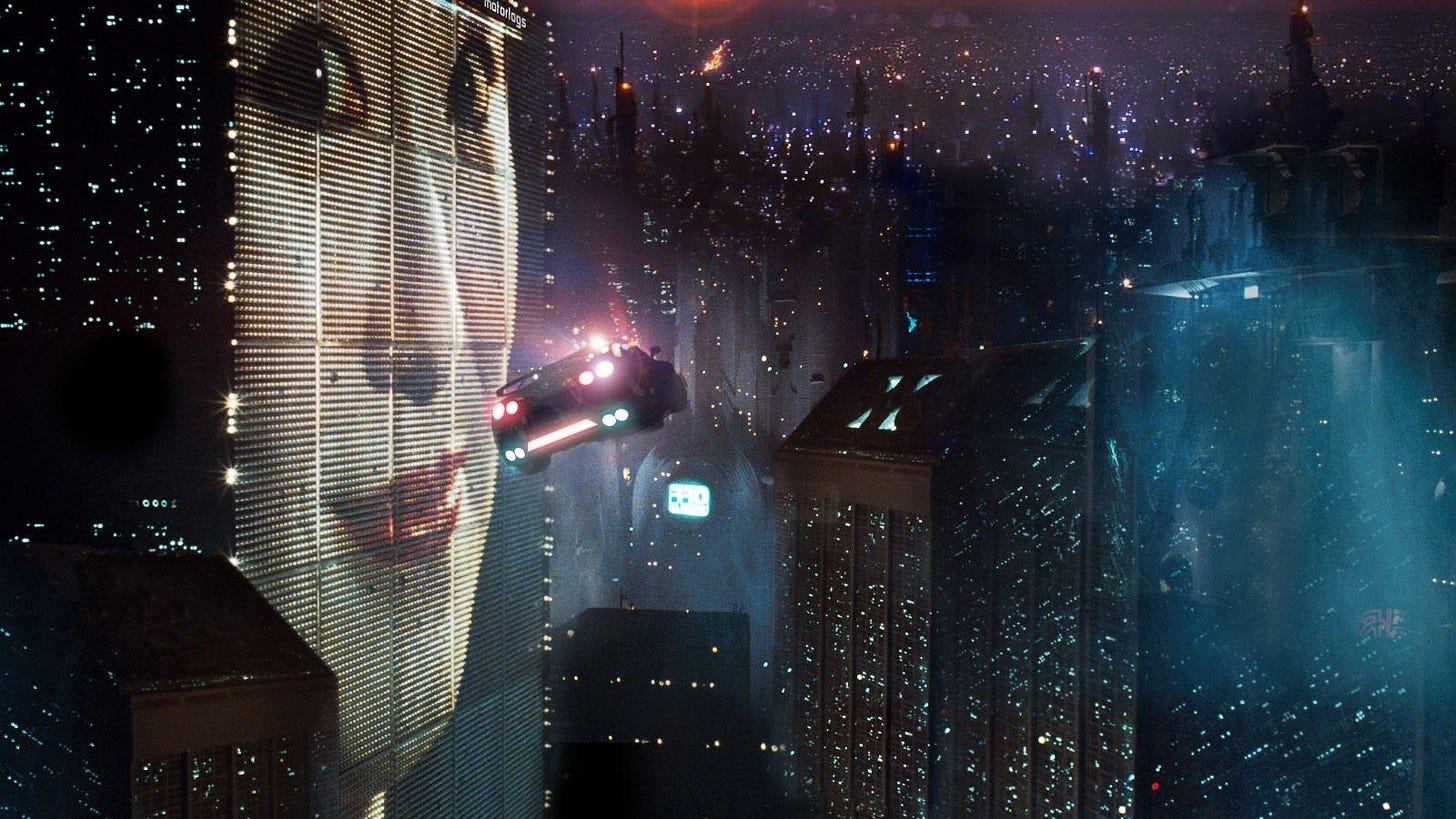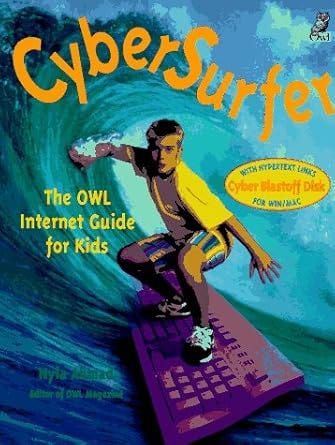Cyberjerk 2025
Does "cyber" have anything to do with computers?
Introduction
This follows a previous article where I explored the origins of the term “cyber”. I extend from the Norbert Wiener’s conceptualisation more into what followed.
How often is it said the Cyber Security is another way of saying IT Security? And that it is a subset of Information Security? Was cyber intended to become shorthand for IT stuff? I’m not sure that it was.
I ponder if the term cyber even has anything to do with computers? Modern definitions certainly think so but understanding where the term originated I feel the modern incarnation is a flattened form the removes richer connotation. A modern definition for cyber is generally as follows.
Cyber: of, relating to, or involving computers or computer networks (such as the Internet)
Let’s quickly recap on it’s origin and then see what happened from there.
Norbert Wiener introduced the term cybernetics in the 40s. Wiener discussed cybernetics as the relationship and interaction between animal, machine, and the environment. More specifically he is talking about feedback loops in biological and technical systems. He derived the word cybernetics from kybernḗtēs which means steersman or pilot in Greek and he chose this to emphasise the importance of control and guidance. It’s interesting to note that the word kybernḗtēs is also the root of the word governance which is clearly broader than considerations of IT configuration.
The intention of the term cybernetics in Wieners conceptualisation was not to describe computers per se. Computers didn’t exist as they did today mainly consisting of basic programs and large machines built around thermionic/vacuum valves. Cyber was in the parlance before computers so to claim that cyber is related solely to computers is a difficult position to support. Our relationship with technology is not the technology itself, it’s something different and as the term was evolved into the 70s and 80s it took on other dimensions but remained rooted in the exploration of the relationship between animal and machine.
Science fiction writers were up next to have their crack of the whip with this cyber stuff.
Cyberpunk
Cyberpunk generally deals with dystopian societies that struggle with the relationship between animal and machine. It provides commentary on the possible outcomes that arise through misuse of technology. We are talking about things like Blade Runner, RoboCop, The Matrix, Judge Dredd and that kind of thing. Obviously just talking about ‘IT shit’ in entertainment doesn’t make for a particularly enthralling story so that means other themes come into the frame. The impact of technology on society, humans, or projecting into the future clearly comes into play. It’s obvious then why the rather flat contemporary use of ‘cyber’ doesn’t fit the bill when we are discussing cyberpunk. We are still talking about the relationship between animal and machine and the technology itself is incidental to the story being told.
Bruce Bethke is an American author who coined the term ‘cyberpunk’ with his 1983 short story ‘Cyberpunk’. This popularised the term ‘cyber’ in the common parlance. He has written several novels, including ‘Headcrash’, which won the Philip K. Dick Award in 1995. Bethke has also worked as a supercomputer software developer and served as a judge on the Philip K. Dick Award.
I exchanged messages with Bruce to get his perspective on ‘cyber’ and we our discussion led to some interesting places. The original conceptualisation of the term cyberpunk is associated with the concept of technology ubiquity. Bruce explained it with this question “what happens when these things become cheap enough and common enough that they’re no longer the exclusive province of university-educated people in lab coats?” What I take this to mean is that we are talking about how technology is situated relative to society. In this sense the ubiquitous nature of the technology means that there is common or inexpensive element to it, a punkish element if you will. Clearly the term punk is evocative of a class or ethos. It’s the DIY mentality and working with what you have to achieve different and unintended means. Of course, manipulating a system within it’s own rules yet outside the intentions of its creator is the very definition of hacking and this is one of the themes explored in Bruce’s work. When punk is appended to cyber then what we are talking about is an ethic or perspective associated with the technology and implied relationship with that technology.
Bruce suggested that language itself can be considered a form of technology. This is an interesting contention and one that has appeal. I suppose it might seem high brow but conceptually it poses some interesting questions about the nature of communication. If we consider that to be another technology then our relationship with language comes into the scope of what is cyber under a Wiener-esq definition. It has the elements needed to satisfy such a definition as it is inherently the delivery channel and message of a feedback mechanism between animal and machine.
Evolution of language
Our discussion went on to language adoption and how that language acquisition later in life is very different to the understanding of those who grew up with it. Those who grew up in a ‘culture’ have a higher level of fluency in it than those who adopted it later in life. This leads to a generational disconnect the obvious schism between the current one and the last. Experientially the next generation cannot fully understand the prior one and the inverse is true. Context and association are lost, the thick concepts and embedded meanings are not universal, almost like two countries separated by a single language. Plato captured the sentiment of this concept when talking of children.
Don't force your children into your ways, for they were created for a time different from your own.
Plato
The schism of meaning between generations is true of the word cyber itself, morphing and changing over the passage of time, mailable to the needs of the time. There is something to be said for a generational shift of the meaning of words and the consequential change in behaviours between generations and even the perceptions of concepts. If we consider language to be a technology then we could consider these generational changed to be different versions of the corpus.
After the authors of the cyberpunk genre came the 90s, and as glorious as those times were they eviscerated the thick concepts attached to the term cyber.
Enter the Cyberspace
As the internet started to gain traction a certain aesthetic emerged. A continuation of the late 80’s bold, neon, and vibrant style which started integrating new terms the promoted an optimistic view of the future.
Cyber was prefixed to anything and everything vaguely tech oriented. We see the same today with AI as a suffix, or later trend of an ‘i’ prepended to an arbitrary word. Who really needs a Samsung jet bot AI vacuum cleaner? I’m sure you could pick one up on Cyber Monday . . . sorry about the iDad Joke.
The release of Window 95 coupled with endless stacks of AOL and Compuserve compact discs drove mass adoption of the internet. Cyber was the term that was presented to the uninitiated to bring them into the fold and get them surfing cyberspace.
There is something refreshing about looking back at the 90s technological aesthetic. It has a self confidence that is lacking today. Although it flattened the meaning in words it embraced individualistic and unique design in a way modern technology doesn’t. They weren’t scared of pushing out the envelope.
The 90s aesthetic eventually gave way to Y2K futurism and a sequence of uninspiring design trends followed leading us to the current day, Now we are encumbered with a pervasive landscape of flat, pastel colours, minimalistic logos, and tiny variants on the same sans serif font. Cyberspace today is awash with an uninspiring form of digital brutalism brought to us by joyless corporations, designed by joyless UX developers trying to hide their cynical utilitarianism behind the stickers on their fucking Macbooks.
The 90s saw the simultaneous death and rebirth of the term ‘cyber’.
“Wanna Cyber?”
There is a quintessential use of the term ‘cyber’ from the 90s that should be remarked upon. In many a chat room or IM on ICQ, MSN, AOL, IRC, or even Trillian if you were some kind of tech wizard at the turn of Y2K.
ICQ quietly died in 2024 and was one of the last hold outs of 90s cyberspace. But, it introduced many to ‘cyber’ as a standalone term. If you are of a certain age you might have received a message that read “a/s/l” which meant age / sex / location. An agreeable response to that question was often followed by another message. You might have even sent it yourself you dirty rotter.
“Wanna Cyber?”
This was basically an invitation to do the cybersex thing. The internet being what it was meant this was a text based experience but people seemed quite into it. For many, this was their first introduction to the word cyber.
Cyber-farting
You would think that a concept that had been reduced to a proposition to engage in one handed typing would be the lowest point . . . but you are wrong. 2025 took it down another notch.
Yes, cyber-farting is a thing. This year was the first year someone was prosecuted with the crime of cyber-farting. I’m not sure what there is to say about this. Cyber has literally be reduced to fart jokes.
Conclusion
We are left with cyber as a term which has iterated and changed over time. Much like the technologies described in the cyberpunk genre the term ‘cyber’ itself has been contorted from original intent to a bastardised form, one that bends to the will of the user.
The 90s systematically hollowed out the nuance and meaning that existed to the term ‘cyber’ as it reached ubiquity. We now have a word that has so little meaning and so much association with vacuous corporate marketing bullshit that it’s mere use attracts ridicule, and rightly so.
The use of the term ‘cyber’ has come full circle. Today’s inheritors of the word were the manifestation of the dystopian society that sci-fi writers speculated about. Recent events might extend that dystopia to a world that has fallen beyond that into idiocrasy.
As Bruce said to me, “In 1980, I figured I was looking 40 years into the future. I’m please to see that the future has arrived right on schedule”. I can merely only rejoin by saying, “it might be worse than that though”.







